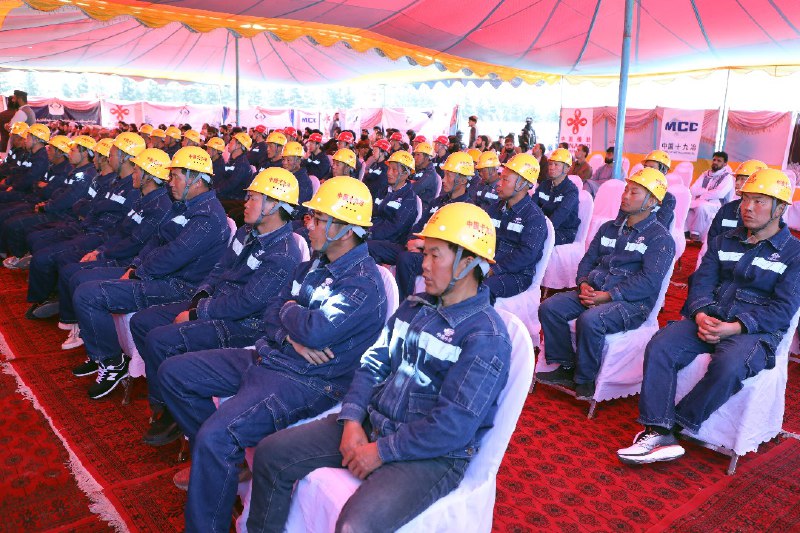The practical work of a multimillion-dollar housing project in Kabul, financed by China, started on Sunday.
The project will see 1,400 units built in Nile Bagh area near Darulaman Palace, with the help of $71 million from China.
Speaking at the inauguration ceremony of the project, Deputy Prime Minister for Economic Affairs Mullah Abdul Ghani Baradar considered it a big and fundamental step in the direction of progress and development in the country.
According to Baradar, the Islamic Emirate has taken effective steps in carrying out construction and infrastructure projects in the country and plans to start other big projects in the near future.
He thanked China for starting work on the Nila Bagh housing project and urged Beijing to also work for regional connectivity.
Baradar also asked the Chinese government and businessmen to invest in various fields in Afghanistan and to take advantage of existing opportunities. He added that with this, economic and trade relations between Kabul and Beijing will expand.
Chinese ambassador in Kabul, Zhao Xing, emphasized that his country cooperates with Afghanistan in various fields.
He said that Afghanistan and China have long-standing and good relations and Beijing is committed to maintain relations with Afghanistan in economic, political and military fields.
Abdul Salam Hanafi, the administrative deputy of the prime minister, expressed hope that with Afghanistan joining the “One Belt and One Road” initiative and the completion of the work of Wakhan Corridor, the country will be directly connected to China.
Acting Minister of Higher Education Neda Mohammad Nadim said that with the Islamic Emirate ruling the country, projects are implemented with full transparency.
He stated that the Islamic Emirate is committed to the welfare of the people and is ready to make any sacrifices for their well-being.
According to officials from the Ministry of Urban Development, the management and engineering side of the Nile Bagh housing project is being carried out by the Islamic Emirate, and the residential units are for government employees, the construction of which will be completed in just over three years.











